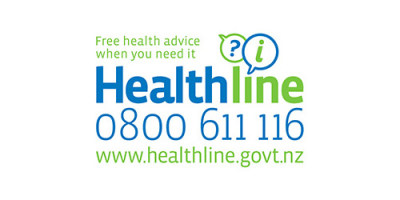Cochlear implants make listening fun
 Having a cochlear implant is an emotional and life-changing event for many children experiencing profound deafness.
Having a cochlear implant is an emotional and life-changing event for many children experiencing profound deafness.
Hearing aids have their limitations but a cochlear implant bypasses the cochlear and stimulates the nerve to provide hearing sensations for severely and profoundly deaf children.
There are 12 children and young people with cochlear implants in the Nelson Marlborough region, all under the care of the Southern Cochlear Implant programme (SCIP).
In June this year SCIP started holding clinics in Marlborough, which helps reduce the burden of travel and accommodation for families, and cost for Nelson Marlborough Health, of having to visit Christchurch.
Jackie Clemmer, audiologist and district team leader says general anaesthetic auditory brainstem response is an important tool to assess hearing for those that are unreliable with behavioural testing (eg very young children) She says it had been attempted in Nelson Hospital on a number of occasions but that electrical interference in the theatres meant they were unable to interpret results.
“However, it’s excellent that we have this option at Wairau Hospital. The audiology department there can provide a sound-treated, calibrated testing room and the service plans to visit three times a year depending on patient demand.”
Jackie says having the SCIP clinics in our region is a great opportunity to observe what they do.
“It is also a more child and family-focused option,” she says. “It enables our patients to connect with specialist services even though they live outside a main centre.”
 Lucy’s story
Lucy’s story
If hearing problems are not picked up early there is a serious effect on a child’s ability to learn speech. Luckily for Lucy Gauntlett her hearing loss was picked up during the routine newborn hearing screening.
“She didn’t pass,” said her mother Caitlin, “and at the three-month test it was confirmed that she couldn’t hear anything.”
By the time she was six months old Lucy was in Christchurch having cochlear implants, which were ‘switched on’ when she was seven and half months old. Caitlin says it was like a natural progression for Lucy because she was learning to talk at the same time as learning to hear.
Caitlin says Lucy is nearly three now and is a super-happy, inquisitive child with perfectly normal speech. “She is quite a chatterbox. You would never know she has implants.”
The implants are hidden under Lucy’s curly hair, and she currently has pink covers on them. If anyone asks what they are Lucy tells them that “they are my ears”.
Audiologist Jackie Clemmer says young Lucy is a real star whose life has been profoundly changed by the cochlear implants.
“Lucy is a great example of the benefits of early identification via the newborn screening programme,” says Jackie. “Without her implants she wouldn’t even hear a fire alarm and she would’ve had pronounced language delay but now she is not only up to the expected level for her age in her language progress but she is ahead.”
 Megan’s story
Megan’s story
Megan Gerritsen was the first person who successfully underwent auditory brainstem response testing under general anaesthetic at Wairau Hospital in June 2015.
Megan has a rare metabolic disorder resulting in multiple health issues. Her hearing impairment was picked up at a screening test when she was six weeks old, and she had her first hearing aids at three months old.
Megan was referred to SCIP when she was nine years old as her hearing had worsened to the degree that hearing aids were not able to provide sufficient access to all of the sounds of speech. She received cochlear implants in December 2015 which were switched on a few months later.
Her mother Stacey says within six months she noticed a difference with Megan responding to her name. “I could also tell her to stop so she didn’t send her wheelchair in to the traffic,” she says.
Before the SCIP service began visiting Blenheim, Stacey says it was very stressful travelling to Christchurch.
“After the earthquake it was an eight hour drive with Megan and flying wasn’t much better,” she says. “Megan was so exhausted she would have multiple seizures.”
When Megan saw the service in Blenheim she was bright and alert and they got the best test results to date, proving that being able to access the SCIP service locally is both cost-effective and beneficial for a patient’s wellbeing.
Baby can you hear me?
Each year around 170 babies are born in New Zealand with mild to profound permanent congenital hearing loss.
Over half of these babies found to have a hearing loss have no family history or any other reason indicating they may be at risk. Without screening it is difficult to detect hearing loss in babies until speech and language development becomes delayed.
In 2010 Nelson Marlborough began universal newborn hearing screening. Under this programme all babies in our region are screened for hearing loss within the first month of life, preferably before they leave a maternity or hospital ward.
The hearing test is computerised and is done while the baby is settled or asleep. It can take between five and forty minutes, is safe, simple and parents receive the results of the test immediately.
Since screening started in 2010, 144 babies have been referred to an audiologist and 32 have been diagnosed with having permanent hearing loss. Only two children picked up through newborn screening programme have gone on to have cochlear implants.
Page last updated: 26/06/2019





